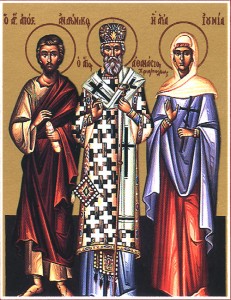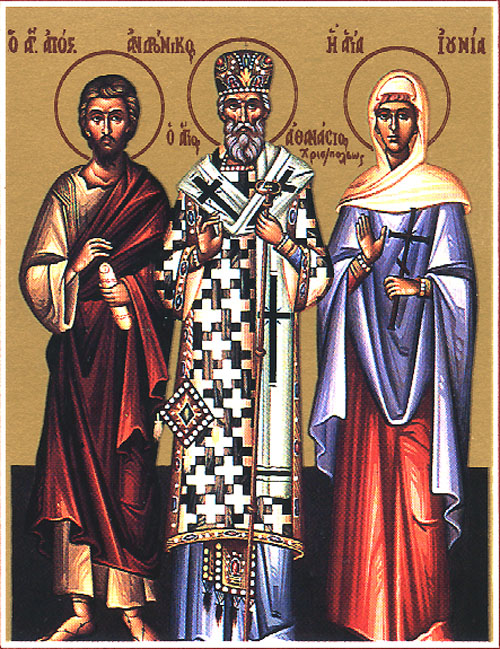Women in Ministry – by Cynthia Holder Rich

See Theresa Cho’s Essay, “Mary & Martha: Women in Ministry in the 21st Century”
I was ordained in 1984. For women in ministry, how have things changed?
I was ordained to the Ministry of Word and Sacrament in the Presbyterian Church (USA) in 1984. I had been introduced during seminary to inclusive language about people and the rich diversity of biblical images of the Divine, a component included in the grading matrix of class papers and drummed into those who led worship. During my first call, I attended Women in Ministry conferences, workshops, and retreats. Some of the first women ordained in the Presbyterian Church attended these; Margaret Towner, the first UPCUSA woman ordained and a clergy colleague in my presbytery of ordination, was among them. At these events, women who had been ordained in the late ‘50s and in the 1960’s told tales of their struggles and triumphs early on. Some of them clearly continued to bear scars. A woman in my presbytery of care was ordained in those early days, after working for General Assembly for years; her supervisor told her he would suggest her contract be changed to a call if she would promise not to get pregnant, a suggestion to which she agreed in order to attain ordination. Others took calls with terms far under presbytery minimums; some had searing stories ripe with sexism of life in the parish; for some, these bordered on assault. These women felt called by God, and had jumped through the myriad hoops and over many barriers to get to the status of ordained clergy. They made a habit of keeping up with one another; they were the ones in presbyteries who would attend each new woman clergy’s ordination; they supported one another because they knew they were in a real struggle.
In some ways, times have changed; in others, not so much.
I was raised by progressives and feminists. My parents were both politically active and could be counted on to be unstinting vocal advocates, doers and implementers of justice in church and society, which they understood as central to following Jesus. Exposure to these witnesses early in my life helped to form both a foundational theology fueled by an urgent sense of the need for disciples to join in God’s constructive anger and impatience regarding injustice in the world and in the church; and, my sense that being a woman isn’t negative, and in fact, can be a positive part of life for those called to ordained ministry. Both the anger and the optimism about ministry prospects have been valuable gifts that inform my life, my ministry, and my faith.
Feminism shifts and is distorted
Now, I am past my 25th anniversary of ordination. Feminism has shifted and been distorted in both society and church to the point that many women seminary students eschew the label. In the same way that some would suggest that with Obama’s election we in the US now live in a post-racial society, some in the church want to believe that Galatians 3:28 is lived out in our time and so, thanks be to God, there is neither male nor female but simply unity in the Lord. Inclusive language is often ignored, although many judicatories and institutions list insistence on its use in their policy statements. Clergywoman who call their institutions or judicatories to follow these policies report smirks and “come, now” responses. The language issue has shifted and been twisted, along with much of the rest of the demonized “feminist agenda”.
Reports suggest congregations maintain a preference today for young, married male pastoral leadership.
Meanwhile, a recent report of the Joint Committee on Leadership Needs of the Presbyterian Church (USA) suggests that most congregations looking for pastoral leadership persist in their preference for young, married males. The Pulpit and Pew Research on Pastoral Leadership Institute reports, in a summary of recent studies of women in ministry, that serious, deep challenges continue for women seeking ordination and calls or appointments. While the numbers of ordained women, women pastors, women staff of institutions and judicatories, and women in head of staff positions continue to grow, views informed by a perniciously persistent and robust preference for men (again, men who are clearly young and straight) continue to make an impact. The possibilities of women attaining ordination, and their and short- and long-term potential of finding and maintaining ecclesiastical employment offering adequate remuneration to cover the needs of life and family remain a challenge.
What are women called to ordained ministry to do? How can we impact the situation? What partners do we need in this struggle?
We have to acknowledge the truth.
First, we have to acknowledge, together, that we are still IN a struggle. Early in my ordained ministry, I served in a very geographically large presbytery, which held only three (overnight) meetings a year. When I took the call there, I was the only ordained woman in the presbytery. Over the next 20 months, three large congregations called women associates. The four of us served almost at the four corners of the presbytery. The first night of presbytery was always dinner and some kind of program. We four clergywomen would ditch the program and go out to dinner at the best restaurant in town. We would sit for hours, eating, laughing, and sometimes crying and praying – three times a year. We took this precious time together, acknowledging the challenges and encouraging each other, in ways that others in our contexts could not, or did not, knowing it would be months before we would find this level of understanding, compassion and support again.
Yes, we were suspected of nefarious activity. Yes, our meetings off-site made some of our colleagues nervous. Yes, we were accused of disloyalty and unprofessional behavior. And yes, those meetings three times a year made it possible for women called by God to persevere and minister in the name of Jesus. In the same spirit that sisters whose ministries started decades before ours made a special effort to reach out to women new to the field, we affirmed each others’ calls and offered strength and courage.It is crucial that women in ministry support other women in ministry.
Churches and institutions could do more.
Further, communions and institutions need to do a better job living out inclusivity policies that have been on the books (for many) for decades. In a previous essay for ecclesio.com, I shared Association of Theological Schools research findings that the number of women professors at all ATS schools has plateaued at around ¼ of all faculty for some years – an unacceptably low figure considering the number of women students needing role models, mentors and examples of how to do ministry in often-hostile contexts. Denominations that ordain women need to commit themselves to higher levels of investment and energy toward engaging conversations on the meaning of being human before God – and what that means, theologically and ecclesiologically, in terms of who God is calling to leadership in the church.
Ultimately, whether or not acknowledgment of the reality on the ground is politically correct, sensitive, or risky, we who follow Jesus must be honest with one another. It remains more difficult for many competent, gifted, called women to be ordained, find calls, and maintain employment in the church than it is for many men, particularly men who are young and married. Injustice continues to live and be woven into the fabric of our lives and ministries in the church. Being called by God means we have to stand against sin, even – especially – when it is inside us or benefits us. May we find the strength so to do.
On Wednesday, Theresa Cho joins the conversation.
See Theresa Cho’s Essay, “Mary & Martha: Women in Ministry in the 21st Century”


I am an African American Clergywoman, ordained in 1991. While my first call was to a congregation as an Associate Pastor, the rest of my ministry has been serving in Administrative Positions. I recently retired as the Executive Presbyter of Tropical Florida Presbyterian and am now serving in an informal situation as a Parish Associate at the Korean Presbyterian Church of Miami. Yes. I did say the Korean church. It is interesting that they were the ones who approached me to invite me to be a Parish Associate. It has been an interesting journey. I don’t see that a lot has changed for African American clergywomen as they still struggle to get a call. As Executive Presbyter, I had to listen to some of the rhetoric regarding women pastors of any kind and was so disappointed to hear women saying, “We don’t want a woman pastor.” While I made a special effort to help women get positions,it was an ongoing fight. So, for me, things are much the same and so many of my colleagues are in pain because they cannot fully carry out their call to ministry.
Thanks for taking the time to respond, Dr. Gordon. The story you tell is of course a familiar one, albeit painful. Both prayer and female solidarity, particularly among clergywomen, are needed.
And you are right — VERY interesting that it is a Korean Church that approached you about serving as Parish Associate! Lots of unpacking to do there, and some prejudice, perhaps, can be left by the wayside too.
Thanks much — Cynthia
Thanks Cynthia for your article. Validating and restorative, realistic and yet hopeful at the same time. I hope other clergywomen will realize that while the “fight” goes on, we are still called to pursue and to be engaged. Thank you.
Thanks for responding, Laurie — how do you think we can engage clergywomen who are clueless re: the need to support others?
I am grateful for a Pastor Nominating Committee who took time to wrestle with the ideas of call and gifts. I am grateful for a congregation who is open to getting to know ME and serving together as we move forward in ministry.
I also encounter increasing numbers of called, gifted, bright, skilled 30- or 40-something women leaving parish ministry as they experience the heavy ceiling in the church while realizing that doors are open wide in other venues. I often wonder why “the church” isn’t the place of prophetic realization…why we lag behind culture in so many vital issues.
And so I pray. And hope. And try to trust.
Thank you.
Thanks Katherine. The Body of Christ IS the place of prophetic realization — and prophecy, and the Prophesying Savior! The church…often disappoints.
The pain of seeing gifted women leave the field is hard. How do you think we could better support those considering leaving and advocate for change?
Sista, you are preaching. The battle still goes on. As an African-American celrgywoman, I have had my calling both embraced and rejected. One (of too many stories to share) there was a sister church in need of a pastor. They had contacted the church where I was serving to inquire if anyone was qualified on his staff to serve as pastor at their church. When my pastor indicated that I was the most qualified and available, they replied that they would rather be pastorless than have a woman. That was “a shake the dust from your sandle and move on” moment.
Thank you my sister! You are right about that dust off the feet thing — but really, someone could have been blessed by your service and turned it down? They deserve to be pastorless. How rude! And stupid!
Thanks for being in the struggle and continuing to support women who are finding their voice — Cynthia